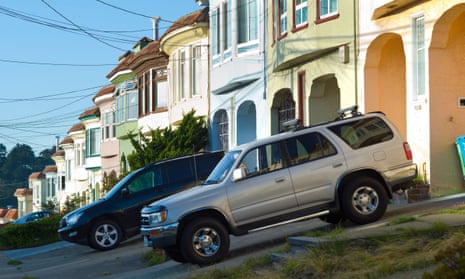This past August marked 16 straight months of record-breaking high temperatures globally. The planet is hotter right now than it has been in 115,000 years. Nasa makes very easy-to-understand videos that show the decrease in the polar ice caps in the Arctic Circle, which is warming twice as fast as the rest of the world. More than 90% of the world’s climate scientists say that the planet is warming and human activity is the cause.
Amazingly, lots of people still don’t believe them. Less than half of all Republicans polled this year by Yale and George Mason universities think that the climate is changing at all.
What is going with on with these people? Kirsti Jylha, a psychology professor at Sweden’s Upsala University, recently published a thesis in the scientific journal Personality and Individual Differences that sketches a profile of a standard climate change denier. Jylha’s studies found that climate change denial correlates strongly with conservative political orientation, authoritarian attitudes and support for the status quo.
Deniers tend to exhibit a low capacity for empathy and a high aptitude for dominance. They’re predisposed to closed-mindedness and seeing the world in a hierarchical structure, and they avoid experiencing negative emotions. Perhaps not surprisingly, they are usually male.
Since climate change denial hampers efforts towards the collective worldwide action scientists believe will be required to ward off the most catastrophic results of global warming, Jylha hopes that her work can lead to new routes of communication and cooperation.
“The arguments used in the climate debate often revolve around giving up conveniences in life to help the environment or the poor or weak,” Jylha told Science Daily. “But that is maybe not a convincing argument to someone who sees the world from a hierarchical viewpoint. It would perhaps be better to talk in other terms and describe how everyone will benefit from the measures instead of being affected by the consequences and that the measures don’t have to be a threat to the current societal structure.”
In other words: how can we more effectively talk stubborn, closed-minded jerks into helping to solve (and/or, at the very least, stop worsening) the world’s most dangerous problem? Following Jylha’s lead, I’ve come up with a few conversation starters, to use in the appropriate situations, custom-designed to ease the climate denier in your neighborhood into taking measures that might just do our imperilled planet some good.
You notice the guy – pot-bellied, bad hair, fake tan, tiny fingers, we’ll call him “Donald” – pulling his SUV out of his driveway to head into work. Try this: hey Donald, you mouth, indicating he should roll down his driver’s side window.
When he does, you go on. “Have you ever considered car pooling? If you were to give a couple of your colleagues a ride to work in this huge car of yours, you could dominate conversation for the whole hourlong drive.”
A week later, casually mention that you’re thinking about buying a Prius. Suggest he consider getting one himself. “A nice small car like that would make your tiny fingers look comparatively bigger on the steering wheel.”
One afternoon, when you see him out riding his lawnmower in the yard of his McMansion, ask about the dividing line between his property and that of his other neighbor, Mike. “You should plant some trees all along the fence,” you might tell him. “I suppose Mike might get his knickers all up in a bunch, if you were to do it, say, without consulting him first. But it is your property, and the law says that you can do whatever you want with it.”
Come summertime, ask him whether his wife and kids leave the air conditioning blasting all day. “Who pays the bills in the family, Donald? Who gets to decide when the air conditioner goes on and off?”
Once football seasons starts, and he starts inviting friends over to watch football games in his “man cave”, appeal to his well-established competitive streak. “Who can drink the most beer?” you can ask. “Let’s make pyramids out of our empty cans! And make sure to keep them carefully separated from the non-recyclable garbage when it’s time to clean up. So we can have an accurate count and see who’s the best.”
After the beer drinking and can stacking, and counting and drunken, bare-chested push-ups in the middle of the cul-de-sac or whatever, Donald’s liable to be dizzy and disoriented. Now’s the time to get him to sign the petition in support of the wind farm being proposed in the fields next to the highway. Tell him that the mills are big giant “protection fans”, designed to blow newcomers away from your town. “It’ll be like a great big wall.”

